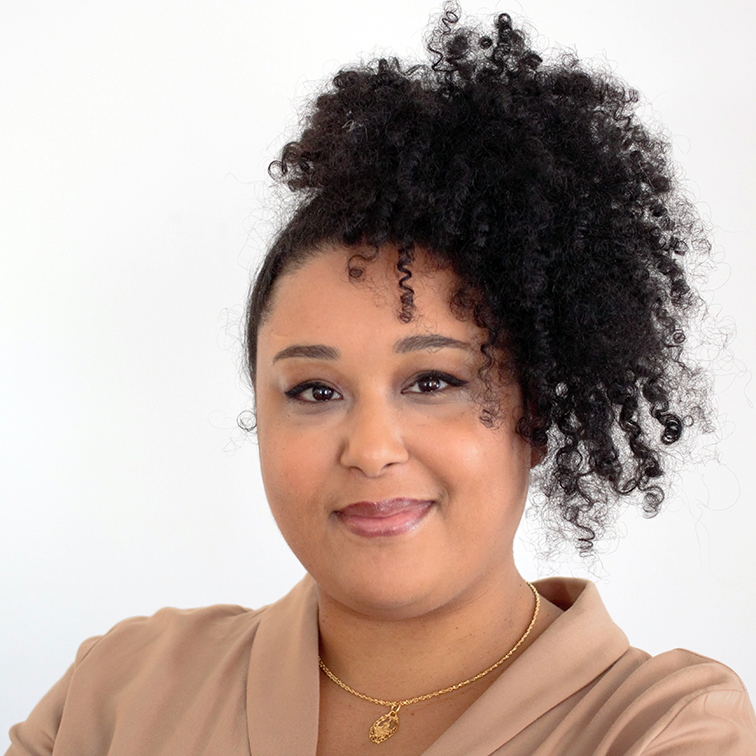Breathing new life into old stories – a writer’s reflection
Samah Fadil is an Afro-Palestinian writer, editor, and translator who resides in Tiohtià:ke/Montreal. Her words can be read in FIYAH, Palestine Square, Skin Deep, Mizna, and more. Samah is interested in showcasing historically marginalized experiences through storytelling, poetry, and visual art. Samah participated in the How to Write Your Nakba Story? workshop, hosted by the Institute for Palestine Studies and co-sponsored by UPA and the Center for Contemporary Arab Studies at Georgetown University. We spoke to Samah to learn more about the writing process and her takeaways from the project.
What are the standout moments from the process of examining your family’s story?
So, for my story I interviewed my friend’s father. It was important for me to write about someone that I’ve known for a really long time but had no idea had such a rich connection to Palestine. In my experience, our elders don’t share much about those hard times, so the standout for me was how much history Shafiq shared with me. It just made me realize how many more people out there have such rich yet untapped histories. During my interview with him, at one point his wife sat down with us and began to talk about her story too, and that was beautiful. She deserves her own article to be honest. I found out she grew up in a Palestinian refugee camp, and this was something her own children didn’t really know about, so it was a standout for me to have our elders share so much with me.
What have been the most rewarding parts of this process?
After the article came out, I had elders from my community message me to tell me how important the work I was doing is. Some said they are more motivated to speak about their history after seeing how younger Palestinians are fearless and eager to speak out. The subject of my interview even mentioned how I inspired him to write. That’s huge, and I am humbled by such a response. It has been so rewarding to be validated in this way.
What big takeaways have you gotten from the workshop?
As crass as this might sound, a big takeaway for me was learning that sometimes all we need to do as writers and reporters is to sit down and shut up. What I mean by that is that we have to step back and actively listen to the people we interview. They have SO MUCH to say, and if you give someone the space to speak, a lot of the time they will take that space and then some, and that’s always a good thing. I also learned through my peers that we all have crazy sounding stories as Palestinians but with some digging, many of these stories can actually be corroborated. I’m thinking specifically about Odette Yidi’s story and how her family had this longstanding urban legend of coming into contact with Jimmy Carter, and how through the Institute of Palestine Studies the dates of his visit to the region were confirmed. I love that. A reminder of why it’s so important to give Palestinians the platform to speak.
How do you practice self-care during this difficult work?
I am still trying to figure this out. I’d be lying if I said that these stories didn’t make me cry throughout the workshop. I think it’s important to take a step back if you’re overwhelmed and understand that the work will still be there when you’re ready. If you’re not feeling at your best, how can you report at your best? It’s about understanding that as writers we are vehicles that attempt to bring stories to life. We also have to be well taken care of; oiled up with new brakes and proper steering if you catch my drift. Wow, I promise the car analogy was not planned, but it conveys what I’m trying to explain, lol!
What advice do you have for people who want to support Palestine?
I’d say first and foremost that this is wonderful, and you are on the right side of history. We are far larger in number than the media wants us to think. Supporting Palestine is supporting Indigenous rights and resistance, and if you want to do that, I think it’s imperative to read and follow and support Palestinian voices. And speaking of the media, observe how they report on Palestine and be more critical of the vocabulary they use. I also think that at the end of the day, we have to understand how important our wallets are to the businesses that operate on occupied Palestinian land and illegal settlements by refusing to buy their products. Look up the BDS movement and throw out that Soda Stream. And above all, don’t ever normalize the Occupation.

